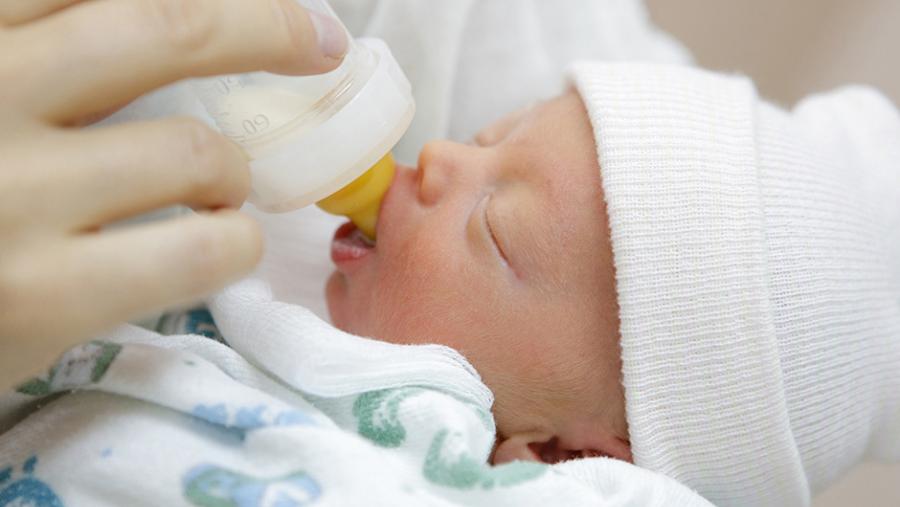Advancing Clinical Trials in Neonatal Opioid Withdrawal (ACT NOW)
Overview
The Research Need
Newborns exposed to opioids in the womb are at risk for a condition called neonatal opioid withdrawal syndrome (NOWS), a type of neonatal abstinence syndrome (NAS). NOWS symptoms can include tremors, excessive crying, irritability, and problems with sleeping, feeding, and breathing.
According to 2021 estimates in the United States, one baby is diagnosed with NAS every 24 minutes, or more than 59 newborns diagnosed every day. [1] Little is known about the long-term effects of this condition, and few standard, evidence-based treatments exist for NOWS.
About the ACT NOW Program
The NIH HEAL Initiative® funded the Advancing Clinical Trials in Neonatal Opioid Withdrawal Syndrome (ACT NOW) collaboration starting in 2017 to inform the clinical care of infants exposed to opioids in the womb. ACT NOW combined the efforts of the Eunice Kennedy Shriver National Institute of Child Health and Human Development (NICHD) Neonatal Research Network and the Institutional Development Award (IDeA) States Pediatric Clinical Trials Network (ISPCTN) to include a study population from across the country. HEAL support for NOWS research has since expanded to include three national consortiums conducting six studies.
Research Examples
ACT NOW
- The ACT NOW Current Experience observational study characterized current practice in managing infants with NOWS and showed large variation in care across the country.
- The ACT NOW Eat, Sleep, Console (ESC) Clinical Trial asked: Do all babies with NOWS need opioids for their withdrawal symptoms? Can some babies be treated without opioids? Is it safe to do so? ESC is a strategy to treat infants with NOWS that prioritizes non-pharmacologic care over the use of opioid medication. This trial compared infant outcomes before ESC was implemented at hospitals and after it was implemented. The study team found that newborns cared for with ESC were medically ready for discharge 6.7 days earlier than those treatment without ESC. In addition, only 19.5% of ESC-treated infants required opioids versus 52% of infants who did not receive ESC. The research team is now following up these infants at 2 years of age.
- The ACT NOW Trial to Shorten Pharmacologic Treatment of Newborns with NOWS (Weaning Trial) asked: For babies with NOWS who do need morphine or methadone, can clinicians get them off these medications earlier? Is it safe to do so? The trial is comparing infant outcomes for those given a rapid weaning off opioid medications versus a slower weaning. Recruitment has been completed, and data analysis is ongoing.
Outcomes of Babies with Opioid Exposure (OBOE)
- OBOE, also known as the Longitudinal Study, is researching: To what extent is NOWS associated with atypical neurodevelopmental outcomes? This study has enrolled 155 infants exposed to opioids during pregnancy and 82 unexposed infants to compare the effects of exposure on brain structures, infant development, and maternal stress and depression over the first 2 years of life. OBOE will analyze magnetic resonance imaging (MRI) findings and other data to discern the impact of antenatal opioid exposure and NOWS on childhood brain structure and connectivity and on medical, developmental, and behavioral trajectories in early childhood. OBOE is collecting MRIs on the infants at 1, 6, and 24 months of age, as well as collecting developmental and behavioral assessments at 1, 6, 12, 18, and 24 months of life. The study will also identify risk factors for adverse sequelae to optimize neurodevelopmental, behavioral, and family outcomes.
HEAL Evaluation of Limited Pharmacotherapies for Neonatal Opioid Withdrawal Syndrome (HELP for NOWS)
- The HELP for NOWS consortium conducted the Informing NOWS Research through Retrospective Data Collection (INFORM NOW) study to see: As the opioid crisis and NOWS treatments have changed over time, what are the current treatment practices and outcomes for infants with NOWS? Study data collection is completed, and analysis is ongoing.
- HELP for NOWS is also conducting the Optimizing Pharmacologic Treatment for Neonatal Opioid Withdrawal Syndrome trial (OPTimize NOW) asking: For babies with NOWS who need opioids, what is the best method of providing that medicine? In particular, can symptom-based dosing be tolerated and reduce the number of days in the hospital from birth until medically ready for discharge compared to a scheduled opioid taper approach? Under a traditional scheduled opioid taper approach, babies with NOWS get morphine or methadone at regular set times. As symptoms get better, the amount of medicine a baby gets decreases until the baby no longer needs medicine. This is called a medicine taper. Under a symptom-based approach, babies only get medicine when they show signs of NOWS. If a baby is showing no signs of NOWS, no medicine is given. OPTimize NOW is being conducted in two phases – the first phase was completed in August 2024; the second phase was started in September 2024.
Open Funding Opportunities
There are no Open Funding Opportunities at this time.- Research Triangle Institute – North Carolina and California
- University of Alabama at Birmingham – Alabama
- University of Arkansas for Medical Sciences – Arkansas
- Thomas Jefferson University – Pennsylvania
- University of New Mexico Health Science Center – New Mexico
- Children’s Hospital of Philadelphia – Pennsylvania
- Cincinnati Children’s Hospital Medical Center – Ohio
- University of Louisville – Kentucky
- Indiana University-Purdue University at Indianapolis – Kentucky
- RTI International – North Carolina
- Duke University – North Carolina
- RTI International – North Carolina
Contact
Nahida Chakhtoura, M.D., NICHD
Resources
Research highlights and news addressing NOWS:
- Science Update: “Eat, Sleep, Console” care approach improves breastfeeding in opioid-exposed newborns, study suggests
- “Eat, Sleep, Console” reduces hospital stay and need for medication among opioid-exposed infants
- ACTing Now to Help Infants Across America
- Help for Babies Born Dependent on Opioids
- NICHD Director Dr. Diana Bianchi Discusses Clinical Trials for Neonatal Opioid Withdrawal
- Institutional Development Award (IDeA) States Pediatric Clinical Trials Network
- Neonatal Research Network (NRN)
- Infographic: About Neonatal Opioid Withdrawal Syndrome (NOWS)
- Infographic: Neonatal Opioid Withdrawal Syndrome: Eat, Sleep, Console Care Approach
You May Also Be Interested In:
HEALthy Brain and Child Development Study (HBCD)
The HEALthy Brain and Child Development Study is building a large cohort of pregnant women from regions of the country significantly affected by the opioid crisis.
Research Snapshot: New Stigma Scale Aims to Improve Health for Pregnant Women Who Use Opioids.
New research, part of the ACT NOW Outcomes of Babies With Opioid Exposure Study, has created a new way to measure stigma among pregnant women who use opioids.
 U.S. Department of Health & Human Services
U.S. Department of Health & Human Services


